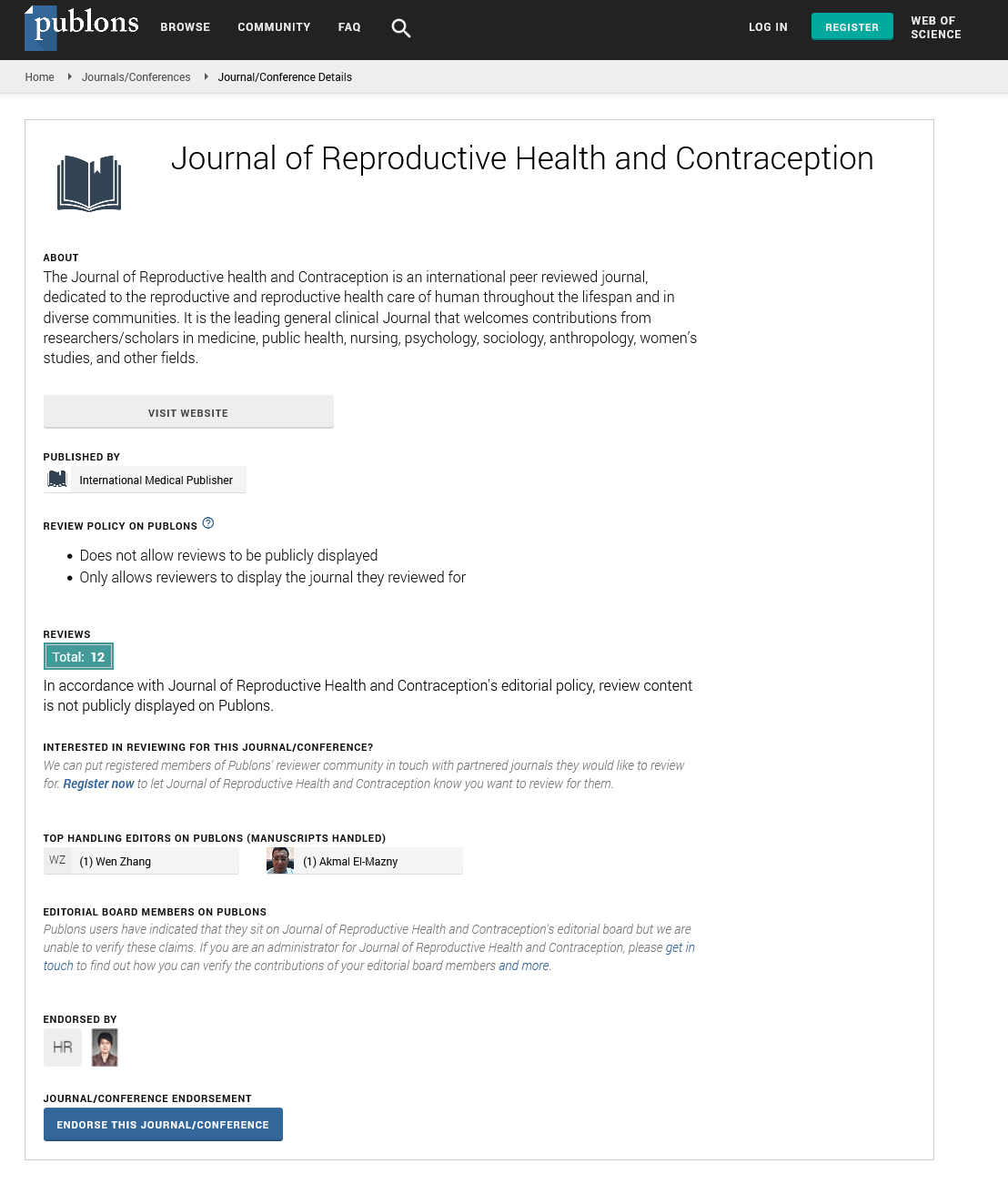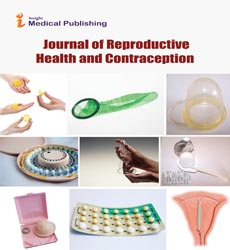Abstract
Contraceptive Method Preferences, Use and Satisfaction among Women of Reproductive Age (15-49 Years) in Umuahia, Abia State, Nigeria
Background: Low contraceptive practice is a major contributory factor to expansive population growth, high risk pregnancies, unsafe abortions, and sexually transmitted diseases. The study determined the pattern of use of contraceptive methods and associated factors among 232 women aged 15-49 years in Umuahia, Nigeria. Methods: A community-based cross sectional study using multistage sampling technique to select 232 participants was conducted. Data were collected by interviewer administered questionnaire. The Chi square test and binary logistic regression were used to assess association between contraceptive use and related factors. The knowledge of the women on contraceptives was assessed using 26 tested and scored questions. Results: The mean age of the women was 25.05 ± 5.33 years. Awareness of contraceptive was very high (96.6%), but their in-depth knowledge was low as only 12.5% had good knowledge about contraceptives. The Media (Radio/TV) was the main source of information (37.6%), followed by relatives/friends (31.4%). Ever use of contraceptives was 39.2%, while only 18.5% were currently using contraceptives. The most preferred and used contraceptive was condom (45.5%) which was considered satisfactory by the women. Fear of side effects (41.1%) was the main reason for non-use of any contraceptive method. Current use of contraceptives was associated with higher odds of being married (OR=3.280; P=0.025). Conclusion: Despite high contraceptive awareness, knowledge and current contraceptive use among the study population were low. Therefore, there is need to design more effective reproductive health programmes, including education targeted at these group of women, but especially the unmarried.
Author(s):
Ukegbu AU, Onyeonoro UU, Nwokeukwu HI and Okafor GOC
Abstract | Full-Text | PDF
Share this

Google scholar citation report
Citations : 201
Journal of Reproductive Health and Contraception received 201 citations as per google scholar report
Journal of Reproductive Health and Contraception peer review process verified at publons
Abstracted/Indexed in
- Google Scholar
- China National Knowledge Infrastructure (CNKI)
- WorldCat
- Publons
Open Access Journals
- Aquaculture & Veterinary Science
- Chemistry & Chemical Sciences
- Clinical Sciences
- Engineering
- General Science
- Genetics & Molecular Biology
- Health Care & Nursing
- Immunology & Microbiology
- Materials Science
- Mathematics & Physics
- Medical Sciences
- Neurology & Psychiatry
- Oncology & Cancer Science
- Pharmaceutical Sciences


